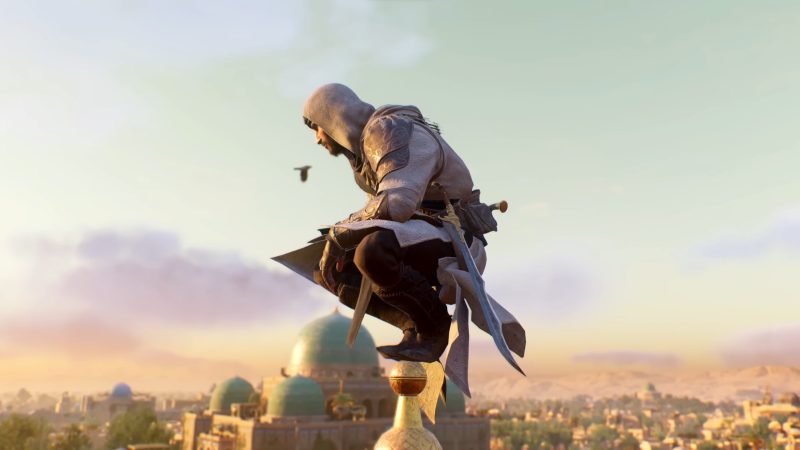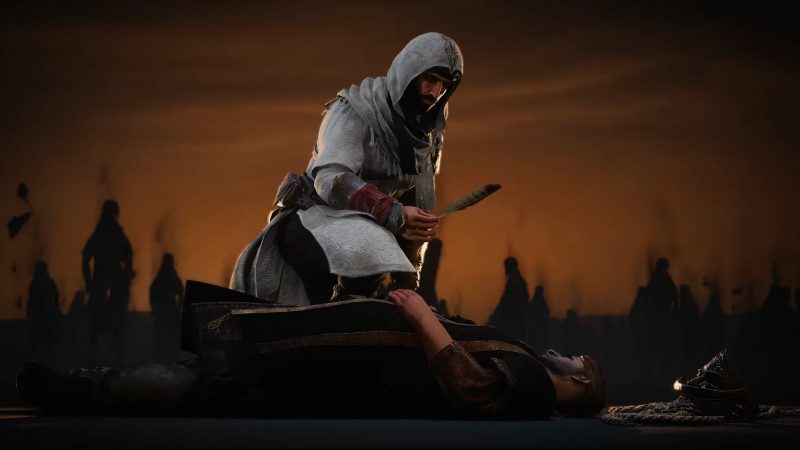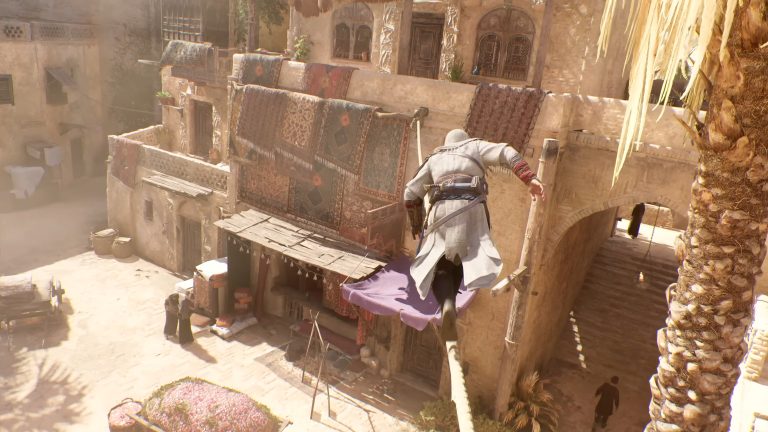Assassin’s Creed IV: Black Flag might have been what opened the floodgates to the series and basically paved the way for the later open-world entries, but it looks like the upcoming entry, Assassin’s Creed Mirage, is taking notes from the less-popular installment that came after Edward Kenway’s maiden voyage.
Assassin’s Creed Rogue put gamers in the shoes of Shay Patrick Cormac in what’s effectively a prequel to Assassin’s Creed Unity. Unlike every other entry since and before it, which lets you play as a member of the Assassin’s brotherhood, Shay is a former assassin who defects to the Templar order. Basim, who, in another life, was known as Loki (yes, the same Loki from Norse mythology), is a complicated character who is technically an antagonist but will be the lead character of the next game in the series.
As if Basim’s eventual defection wasn’t already confirmed by what happened in Assassin’s Creed: Valhalla, the ESRB rating, as spotted by Tech4Gamers, reinforces this.

The ESRB rating is no surprise – Mature +17, akin to prior Assassin’s Creed titles. Violence, gore, strong language, and the occasional drug reference abound, as the game continues the franchise’s unflinching exploration of political and personal treachery. However, the ESRB’s game description has revealed an unexpected twist that is bound to send ripples of intrigue throughout the gaming community: players will have the option to “kill soldiers, fellow assassins, and boss characters.”
The prospect of internal strife within the Hidden Ones is an enticing turn of events. Loyalty among members has remained solid throughout the series, aside from the occasional heated disputes and banishment. This was beautifully portrayed in Assassin’s Creed III, where players, initially unknowing, eliminated a series of notable assassins, only to discover later that their character, Haytham, was a Templar all along. Given this history, Assassin’s Creed Mirage might give players an emotionally-charged narrative experience, echoing the innovative storytelling of Assassin’s Creed Rogue.
So, what motivates Basim, a seasoned assassin and mentor, to turn against his own? Players of Assassin’s Creed Valhalla might recall Basim’s treacherous endgame, where he is revealed as the reincarnation of Loki, the crafty Isu, and inspiration for the Norse God of the same name. Upon the shocking realization that Eivor, his mentee, is the reincarnation of Odin, he discards his role as a guide and instead, becomes the antagonist. If this past betrayal is any indication, players may want to gear up for an intricate tale of treachery, revenge, and regret.

This isn’t to say that Assassin’s Creed Mirage is merely a reiteration of the familiar trope. The backdrop of ancient Baghdad is ripe for exploring unseen alliances, layers of deception, and power struggles.
Coupled with the hallmark open-world environment and missions that demand stealth, strategy, and strength, Mirage may yet set a new precedent for the franchise. Fights that echo with screams of pain, cutscenes that expose graphic violence as well as language that reflects the brutal world of ancient conspiracies, all add to a riveting and immersive gaming experience.
In a series that has often explored the thin line between friend and foe, Assassin’s Creed Mirage could redefine this blurred boundary. It’s unclear whether Basim is uprooting treachery within the Hidden Order or whether he has his own motivations for challenging his fellow assassins.

If nothing else, this intriguing breadcrumb only serves to make us follow the story of the upcoming Assassin’s Creed game more closely.
Thankfully, the release date of Assassin’s Creed Mirage isn’t too far away. The game will be released on October 11 on the PlayStation 4, PlayStation 5, Xbox One, Xbox Series S/X, and Windows. Unfortunately, it won’t be coming to Steam, being available exclusively on Ubisoft Connect, at least at launch.
Speaking of, it looks like the story of Assassin’s Creed Mirage will be a one-off with no DLCs planned, at the moment. But, things can definitely change. Given its relatively low price point, massive sales at launch could persuade Ubisoft to revisit Assassin’s Creed Mirage to see if there’s still any story left worthwhile telling.

